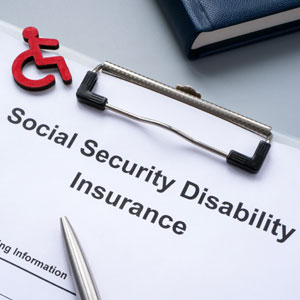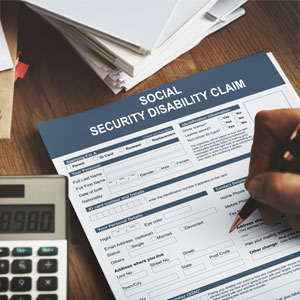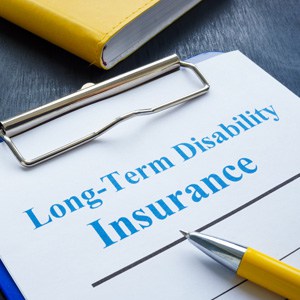Blog

In this article, you can discover… The qualifications to look for when hiring a disability law attorney. Red flags to be aware of when speaking with a prospective lawyer. How to verify an attorney’s experience and legal background. What Qualifications Should I Look For In An Experienced Disability Law Attorney? If your case involves long-term disability insurance and involves considerable risk, make sure your attorney is well-versed in the risk of law. Make sure that your attorney is approachable, and take into consideration what other people say about him or her. Look for detailed client reviews that speak to the attorney’s competence, professionalism, and ability to communicate. What Red Flags Should I Watch Out For When Choosing An SSD Claims…Read More

In this article, you will discover: Whether evidence from social media is admissible in Florida Social Security Disability claims. How social media evidence impacts your Social Security or long-term disability claims. How long insurance companies monitor your social media accounts during a claim. Is Evidence From Facebook Or Instagram Admissible In Florida SSDI Or LTD Cases? Evidence from social media can be admissible and is often seen in Social Security files. Often, the Insurance company will have reams of pages from social media accounts in the claim file. The court will definitely look at your social media history, especially in an ERISA Long-Term Disability Insurance Claim. How Can Social Media Content Hurt My Long-Term Disability (LTD) Claim? The insurance company…Read More

In this article, you can discover… How higher income levels can impact disability claims. The role of careful medical documentation in a successful case. How to avoid key errors when you apply for Social Security Disability. How Could Earning Too Much Income Disqualify Me From Receiving Disability Benefits? Social Security will look into your “substantial gainful activity”, meaning earnings derived from activity that requires you to significantly perform mentally or physically. For 2025, the monthly substantial gainful amount limit is set to $1,620 per month for nonblind individuals. If you are earning at or above this dollar amount, Social Security will deny your disability claim. How Does Incomplete Medical Documentation Impact My Claim? If you are not being treated by…Read More

While it can be difficult to obtain cognitive impairment disability benefits, it is definitely possible. Here are some tips to help you prepare your disability benefits claim. What Is a Cognitive Impairment? The majority of people who file for disability benefits do so for cognitive impairment-related conditions. Cognitive disabilities include difficulty focusing, inability to multitask, memory loss, and trouble making decisions. Cognitive impairment is caused by brain injury, stroke, a psychiatric condition such as depression, or the side effects of medication. Environmental hazards such as chemicals and pesticides can also cause cognitive impairments. Symptoms of a Cognitive Impairment The severity of cognitive impairment varies from mild periods of forgetfulness to significant impairment that results in an individual being unable to care for him…Read More

Chronic diverticulitis can be debilitating, but not everyone with this disease may qualify for long-term disability benefits. If you are wondering, "can I get disability for diverticulitis?" The short answer is yes, but it depends. What Is Diverticulitis? Diverticulitis attacks the digestive system and is caused by the formation of small pouches called diverticula along the intestinal walls. When these pockets become inflamed or infected they can result in severe abdominal pain, cramping, and bloating, as well as fever, nausea, and vomiting. The severity of diverticulitis can range from an acute occurrence to a chronic condition. Doctors are unsure of the precise cause of the disease, but many believe low-fiber diets may be partly to blame. If you suspect you have diverticulitis, see your doctor immediately. If the condition is left…Read More

If you are unable to work, you may be wondering if you are eligible for both unemployment and disability benefits. The answer? Rarely. Yet, some eligibility requirements may occasionally overlap. Eligibility for Unemployment In order to receive unemployment, you must claim to be unable to work. In Florida, you may file an application for unemployment benefits with the Florida Department of Economic Opportunity. Part of that application includes a claim that states you are able to work. You must be considered "ready, willing, and able to work" to obtain unemployment, according to the language used in the application. In addition to this, you must have lost your job due to no fault of your own. These requirements determine your eligibility…Read More

Has Your Condition Changed? How Do You Spend Your Day? What Are Your Symptoms? When Did Your Inability to Work Begin? What are Your Hobbies and Activities? What Are Your Plans to Return to Work? Have You Traveled Recently? How Long Can You Do Certain Activities?” What Kind of Treatment Have You Received? Do You Take Medication? If you receive a call or letter from your insurance company requesting an interview related to your long-term disability, don't panic. It doesn't mean you are about to lose your benefits or that your claim is about to be denied. An interview with an insurance company representative is not uncommon. In fact, up to 50% of claimants are interviewed. Nevertheless, you can prepare…Read More
In the spring of 1992, I celebrated two major life changes: Graduation from law school and the arrival of our son, Avery – my law school baby. Here’s a photo the day I received my J.D. degree with our children – 6-month old Avery, along with Jason and Cortnei – and my ever-supportive Mom, Esmelin Clarke. It’s true. I gave birth to Avery while attending law school and two weeks after giving birth, returned to our class trial practice competition, which we won. That semester I also made the Dean’s list and won the Book Award in 2 classes. For all of this – I’m glad I was young! – my classmates honored me with: The Tenacity and True Grit…Read More

Denied his disability insurance claim four times, Dr. John Doe – ‘John Doe’ is a substitute for the real name of our client to preserve his anonymity – could have given up, but he didn’t. Luckily, he was referred to our firm and we began digging deep into how this 36-year old radiologist’s health condition ended a bright career and turned the tables on his insurance company’s denial. As a radiologist interpreting X-rays, MRI’s, and other types of medical imagining, Dr. John is a specialist, with more than a decade of medical education and training. As a diagnostic radiologist, Dr. John needs acute vision and cognitive functioning skills to perform his duties. Radiologists work weekends, evenings, and irregular hours and…Read More
Benefits – bennies – paid by your employer are hard to pass up, right? But, did you know that if your employer pays ANY of your disability policy premiums or you receive employer premium discounts, your policy can be converted into an ERISA case making it difficult, if not impossible to receive the benefits you deserve. Take the case of FRANK D’ELIA, M.D. v. UNUM LIFE INSURANCE COMPANY OF AMERICA, Civil Action No. 15-3040, Slip Copy (2016). Dr. D’Elia, a urologic surgeon, purchased five occupation-specific disability insurance policies through Unum Insurance Company’s Flexbill program through his employer, where he received a premium discount. Unum’s sales representative assured Dr. D’Elia that these policies would protect him should he become unable to…Read More
